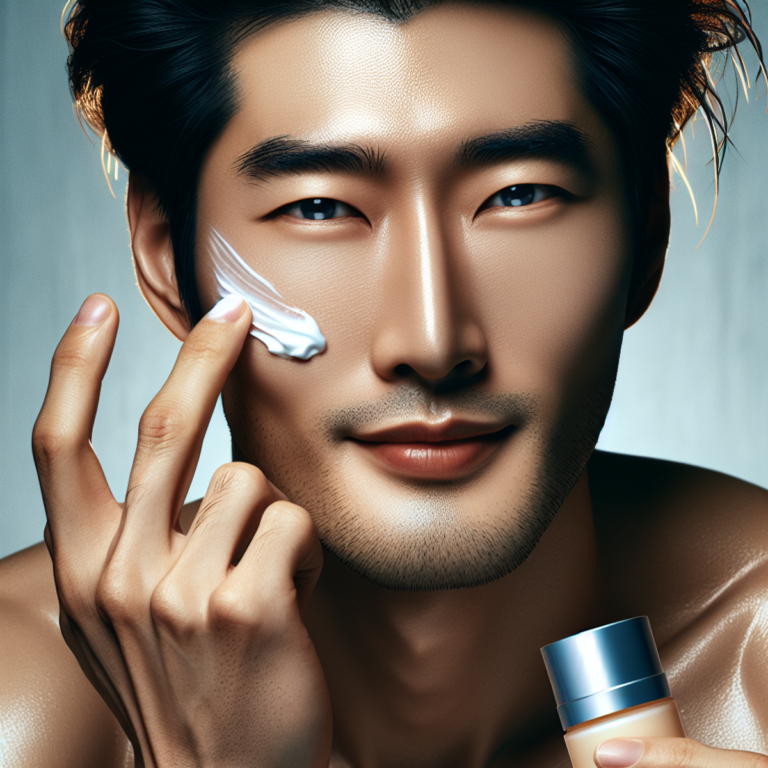Can eggs cause pimples?

Introduction
The age-old question “Can eggs cause pimples?” sparks heated debates in skincare communities. Your diet plays a significant role in your skin’s health, acting as a mirror that reflects your nutritional choices. Research has established strong links between certain foods and skin conditions, with dairy products and high-glycemic foods often taking center stage in these discussions.
Eggs present a particularly interesting case in the acne conversation. These protein-packed powerhouses contain nutrients beneficial for skin health, yet some people report breakouts after consuming them. The relationship between eggs and acne isn’t straightforward – it varies significantly from person to person.
Your skin’s response to eggs depends on several factors:
- Individual hormone sensitivity
- Existing allergies or intolerances
- Digestive health
- Current skin condition
- Consumption patterns
Understanding how eggs affect your skin requires careful observation and consideration of these factors. A personalized approach to managing acne through diet proves most effective, as what triggers breakouts in one person might have no effect on another.
This complexity makes it crucial to explore the various ways eggs might influence skin health, from their nutritional composition to their potential hormonal effects. By understanding these mechanisms, you can make informed decisions about including eggs in your diet while managing your skin health.
The Nutritional Profile of Eggs
Eggs are a nutritional powerhouse that can greatly benefit your skin health. They are packed with essential nutrients that support the repair, maintenance, and regeneration of your skin.
Key Nutrients for Skin Health
Here are the key nutrients found in eggs that contribute to healthy skin:
- Vitamin A: Supports skin cell turnover and helps maintain healthy skin barrier function
- Vitamin B Complex: Promotes collagen production and reduces inflammation
- Vitamin D: Helps prevent skin aging and supports skin cell growth
- Vitamin E: Acts as an antioxidant, protecting skin cells from damage
- Zinc: Aids in skin healing and helps maintain collagen levels
- Biotin: Supports healthy skin, hair, and nail growth
The protein content in eggs provides building blocks for skin tissue repair. One large egg contains approximately 6 grams of high-quality protein, including all essential amino acids your skin needs to maintain its structure.
Specific Skin Benefits
Each nutrient in eggs plays a unique role in maintaining skin health:
- Vitamin A reduces sun damage and supports natural moisturizing processes
- B vitamins help reduce redness and inflammation while promoting even skin tone
- Vitamin D supports skin immune function and helps prevent premature aging
- Zinc accelerates wound healing and helps manage acne-causing bacteria
- Biotin strengthens skin barrier function and improves moisture retention
Potential Concerns with Excessive Intake
While eggs offer significant nutritional benefits, consuming too many can lead to:
- Hormonal imbalances from high progesterone levels
- Digestive issues affecting gut-skin health
- Increased inflammation in sensitive individuals
- Potential interference with nutrient absorption
The recommended intake varies based on individual factors. Most healthy adults can safely consume 1-2 eggs daily without adverse effects on skin health. People with existing skin conditions or sensitivities might need to adjust their intake based on personal response.
Nutrient Absorption Factors
The way you prepare eggs affects their nutritional value:
- Soft-boiled eggs retain more nutrients than hard-boiled
- Raw egg consumption may interfere with biotin absorption
- Pairing eggs with healthy fats improves absorption of fat-soluble vitamins
Hormonal Influences of Eggs on Acne
Eggs contain natural progesterone, a hormone that plays a significant role in your skin’s oil production. This hormone can trigger your sebaceous glands to produce excess sebum – the oily substance that moisturizes and protects your skin.
How Progesterone Affects Your Skin:
- Increases oil gland activity
- Stimulates sebum production
- Can clog pores when sebum production is excessive
- May lead to bacterial growth in blocked pores
The relationship between progesterone and acne becomes particularly relevant during hormonal fluctuations. Your skin’s response to progesterone varies based on your individual hormone levels and sensitivity.
Signs of Hormonal Acne:
- Deep, cystic breakouts
- Acne concentrated around the jawline and chin
- Cyclical breakouts
- Inflammation and redness
The progesterone in eggs might affect your skin differently depending on:
- Your current hormone levels
- Genetic predisposition
- Number of eggs consumed
- Frequency of consumption
- Time of consumption
Research suggests that consuming eggs during periods of hormonal sensitivity might amplify existing acne concerns. Your body’s natural progesterone levels peak during certain times of your menstrual cycle, and egg consumption could potentially intensify these effects.
The impact of egg-related progesterone on your skin typically manifests through:
- Increased oil production
- Enhanced pore-clogging potential
- Greater bacterial proliferation
- Heightened inflammation response
Regular monitoring of your skin’s response to egg consumption helps identify patterns between your diet and breakouts. Some people notice changes within 24-48 hours after eating eggs, while others might experience delayed reactions.
However, it’s important to note that the effects of dietary hormones like progesterone are still being researched. For instance, studies suggest that these hormones can influence various health aspects, including the risk of developing certain conditions such as osteoporosis or cardiovascular diseases. Therefore, understanding how dietary hormones affect health is crucial for making informed dietary choices.
Allergic Reactions and Intolerances: A Closer Look at Eggs
Egg allergies and intolerances are significant triggers for skin reactions, including acne breakouts. These conditions affect approximately 2% of children and 0.1% of adults worldwide.
Common Symptoms of Egg Allergies:
- Skin rashes and hives
- Facial swelling
- Itchy, red patches
- Eczema flare-ups
- Acne-like bumps
The immune system’s response to egg proteins triggers inflammation throughout the body. This systemic inflammation can manifest on the skin, creating an environment conducive to acne formation.
Types of Egg Sensitivity:
- True Egg AllergyImmediate immune response
- Affects both skin and internal systems
- Requires complete egg avoidance
- Egg IntoleranceDelayed reaction (24-48 hours)
- Milder symptoms
- May tolerate small amounts
Your skin’s response to eggs varies based on sensitivity levels. Some people experience immediate reactions, while others notice delayed effects on their complexion. The proteins in egg whites tend to cause stronger reactions compared to egg yolks.
Identifying Egg-Related Skin Issues:
- Track your skin changes after egg consumption
- Note the timing of breakouts
- Document the location and type of skin reactions
- Consider both immediate and delayed responses
A skin patch test performed by an allergist can confirm egg sensitivity. This diagnostic tool helps distinguish between true allergies and intolerances, guiding appropriate dietary modifications for clearer skin.
The connection between egg sensitivities and acne becomes particularly relevant for individuals with existing skin conditions. Inflammatory responses triggered by egg consumption can amplify current breakouts and create new ones, especially in acne-prone areas.
Digestive Issues Related to Egg Consumption: The Gut-Skin Connection
Your digestive system directly impacts your skin health through a complex relationship known as the gut-skin axis. When you experience digestive problems from eating eggs, these issues can manifest as skin problems, including acne breakouts.
The Role of Leaky Gut Syndrome
A key concern is leaky gut syndrome, a condition where the intestinal lining becomes more permeable. This increased permeability allows undigested food particles, toxins, and bacteria to enter your bloodstream, triggering:
- Systemic inflammation
- Immune system responses
- Hormonal imbalances
- Increased sebum production
The inflammatory response from digestive issues can worsen existing acne or create new breakouts. Your body’s reaction to eggs might include:
- Bloating
- Gas
- Abdominal discomfort
- Changes in bowel movements
These symptoms indicate potential digestive stress that could affect your skin health. Research suggests that improving gut health often leads to clearer skin, highlighting the strong connection between digestive wellness and skin appearance. In fact, how your gut health affects your skin is a crucial aspect to consider for overall well-being.
Reaction Time and Influencing Factors
People with sensitive digestive systems might notice skin changes within 24-48 hours after consuming eggs. This reaction time varies among individuals and depends on factors like:
- Current gut health status
- Immune system function
- Overall dietary habits
- Stress levels
- Sleep quality
Individual Variability in Responses to Eggs: Personalizing Your Approach to Acne Management
Your skin’s reaction to eggs can be as unique as your fingerprint. While some people can enjoy eggs daily without any skin issues, others might experience breakouts after just one serving. This variation stems from several factors:
Genetic Differences
- Metabolic processing capabilities
- Hormone sensitivity levels
- Natural inflammatory responses
- Individual gut microbiome composition
Environmental Factors
- Stress levels
- Sleep quality
- Climate conditions
- Other dietary components
Personal sensitivity testing becomes crucial in understanding your skin’s relationship with eggs. Here’s a structured approach to identify if eggs affect your acne:
1. Elimination Phase (4 weeks)
- Remove all egg products from your diet
- Document your skin’s condition with photos
- Track any changes in breakouts
2. Reintroduction Phase
- Add eggs back gradually (start with one egg weekly)
- Monitor skin changes for 48-72 hours
- Note immediate and delayed reactions
3. Assessment Phase
- Compare skin conditions before and after
- Document any patterns in breakouts
- Consider external factors that might influence results
The effectiveness of dietary approaches to acne management relies heavily on personalization. You might need to adjust:
- Cooking methods (boiled vs. fried)
- Time of consumption (morning vs. evening)
- Portion sizes
- Frequency of consumption
- Food combinations
A detailed food diary can help identify patterns between egg consumption and skin reactions. Record:
- Specific egg preparations
- Quantity consumed
- Time of day
- Accompanying foods
- Skin condition changes
This personalized approach allows you to make informed decisions about incorporating eggs into your diet while managing your acne effectively.
Recommendations for Egg Consumption Related to Acne Concerns
Research suggests a balanced approach to egg consumption can help minimize potential skin issues. Here’s a practical guide to incorporating eggs into your diet while managing acne concerns:
Recommended Consumption Guidelines:
- Limit intake to 1-2 eggs per day
- Space out egg consumption across different meals
- Consider eating eggs earlier in the day when hormone levels are naturally higher
Smart Preparation Methods:
- Boiled or poached eggs retain fewer inflammatory compounds than fried options
- Pair eggs with anti-inflammatory foods like leafy greens or berries
- Avoid cooking eggs in potentially pore-clogging oils
Strategic Implementation Tips:
- Keep a food diary to track your skin’s response to eggs
- Start with small portions and gradually adjust based on your skin’s reaction
- Consider organic eggs to minimize exposure to added hormones
Red Flags to Watch For:
- Immediate skin reactions after consumption
- Increased oiliness within 24-48 hours
- New breakouts in typical hormone-related areas
If you notice consistent skin changes after eating eggs, consider a two-week elimination test. Reintroduce eggs slowly while monitoring your skin’s response. This methodical approach helps identify your personal tolerance threshold and allows you to make informed decisions about egg consumption in your diet.
FAQs (Frequently Asked Questions)
Can eggs cause pimples?
The relationship between eggs and acne is a controversial topic. While some individuals report breakouts after consuming eggs, others may not experience any adverse effects. Understanding individual dietary impacts on skin health is crucial for personalized approaches to managing acne.
What nutrients in eggs benefit skin health?
Eggs are rich in several key nutrients beneficial for overall health, including skin health. They contain vitamins A, B, D, E, zinc, and biotin, all of which play important roles in promoting skin repair and maintenance processes.
How do hormones in eggs affect acne?
Hormones can significantly impact skin oil production. Specifically, progesterone found in eggs may contribute to triggering acne breakouts by increasing oil secretion in the skin.
What are the symptoms of egg allergies or intolerances related to skin conditions?
Egg allergies or intolerances can manifest through symptoms such as hives or rashes. These allergic reactions may exacerbate existing acne conditions due to inflammation triggered by the body’s immune response.
How does digestive health relate to acne?
Digestive health plays a critical role in maintaining clear skin. Conditions like leaky gut syndrome can lead to increased inflammation in the body, which is associated with acne development.
What recommendations exist for egg consumption concerning acne concerns?
Moderation is key when it comes to egg consumption, especially for those concerned about acne. Current evidence suggests that cooking methods and food pairings may help mitigate any potential negative effects on skin health.










